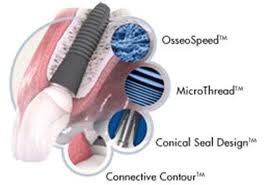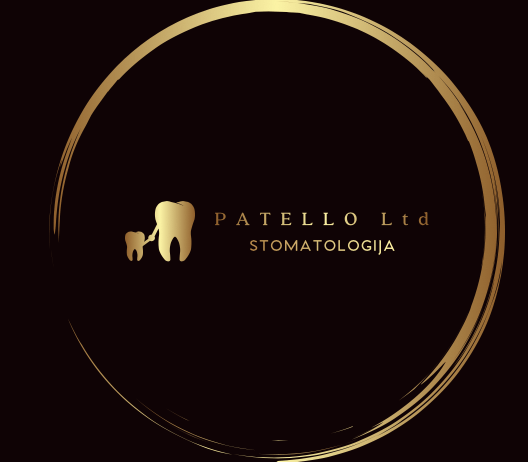Dental implantation
Dental implantation
How long is the treatment?
All people are different and unique, so each case is individual, according to an individual treatment plan drawn up by a doctor. Undoubtedly, your general health is important.
Implantation involves the following steps:
• Implant placement (surgical procedure)
• Bone and soft tissue healing (implant ingrow into the bone)
• Impressions (prosthesis part)
• Prosthesis carcass placement
• Placement of the finished prosthesis
The total and duration of all stages depends on the inserted implant number and volume of prosthetics. Previously, it took 5-6 months for the implant to grow into the bone (osseointegration), but now this process has been shortened due to scientific advances. The bone penetrates the implant surface, osseointigrates, as a result of which the biomechanical fixation of the implant in the bone is formed. Therefore, the crown can be placed on the implant as early as 6-10 weeks after surgery. The new tooth is fully functional. If there are several implants next to each other, the crown part blocks them so that the load is distributed more evenly. There are many different options for solving clinical problems, but it is better to consult your dentist about them.
How expensive is it?
Although implants are widespread around the world as an advanced and successful form of treatment, they are a relatively more expensive procedure than conventional prosthetics. Insurance companies do not pay for implants. However, it is not correct to say that implantation is expensive. You need to know what and for how long you want to get it.
What are dental implants?
The implant reproduces an 'artificial tooth root'. In the place where the root used to support the tooth, an "artificial" root is inserted into the bone. It is made of pure, completely biocompatible titanium, which is then also called an implant. Just as natural roots support teeth, implants fully serve crowns, bridge prostheses, and prostheses that replace all teeth in one jaw. This way you get a new, resistant tooth load, instead of a missing tooth.
What are implants made of?
Today, implants are made only of pure medical titanium. Titanium is a bio-inert material, it is fully compatible with human tissues.
What are the benefits of dental implants?
"There is nothing better than your teeth"! However, if for various reasons you have to decide on artificial teeth, then you have two alternatives:
- The first - a traditional prosthesis. It is possible in case of partial tooth loss and, of course, you will always feel it as a foreign body;
- The second - convincing alternative is an implant, which allows you to recover the missing root, which in turn will provide support for the crown (your new tooth).
Another advantage of implants is that they prevent bone loss at the site of the missing tooth (where prostheses do not protect against bone atrophy due to lack of load). The implant, in turn, retains the bone tissue by transferring the load to the jaw like a real tooth.
When is an implant indicated to a patient?
Implantation is preferred in the case of:
- replacement of one tooth;
- case of loss of several teeth;
- case of prosthetics of a toothless jaw.
Traditionally, when replacing missing teeth with bridge prostheses, it is necessary to grind the adjacent teeth and engage the bridge prostheses. When implant placement, adjacent teeth remain intact. The need to carry removable dentures is also ruled out. The patient does not feel discomfort or the presence of a foreign body.
What to follow and what is the degree of risk?
Dental care and hygiene is one of the main factors in maintaining health. Only good hygiene and dental care help to achieve good and far-reaching results in implantology.
It should be noted that in addition to the above, we recommend that general diagnostic tests be performed before implant placement, which is especially important for patients with symptoms such as high blood pressure, diabetes, etc .. Then visit your doctor regularly for prophylaxis.
* www.astratechdental.com






